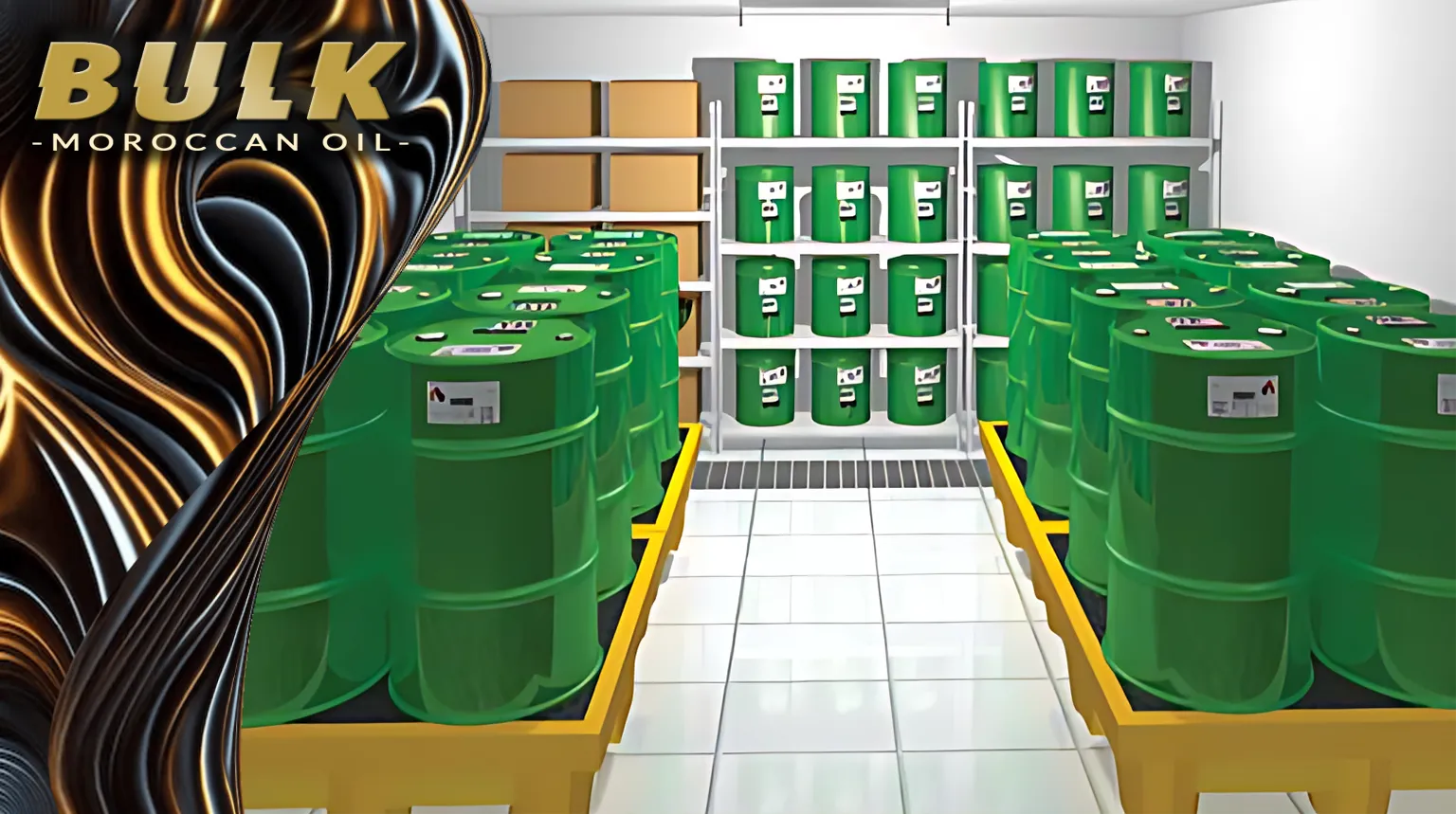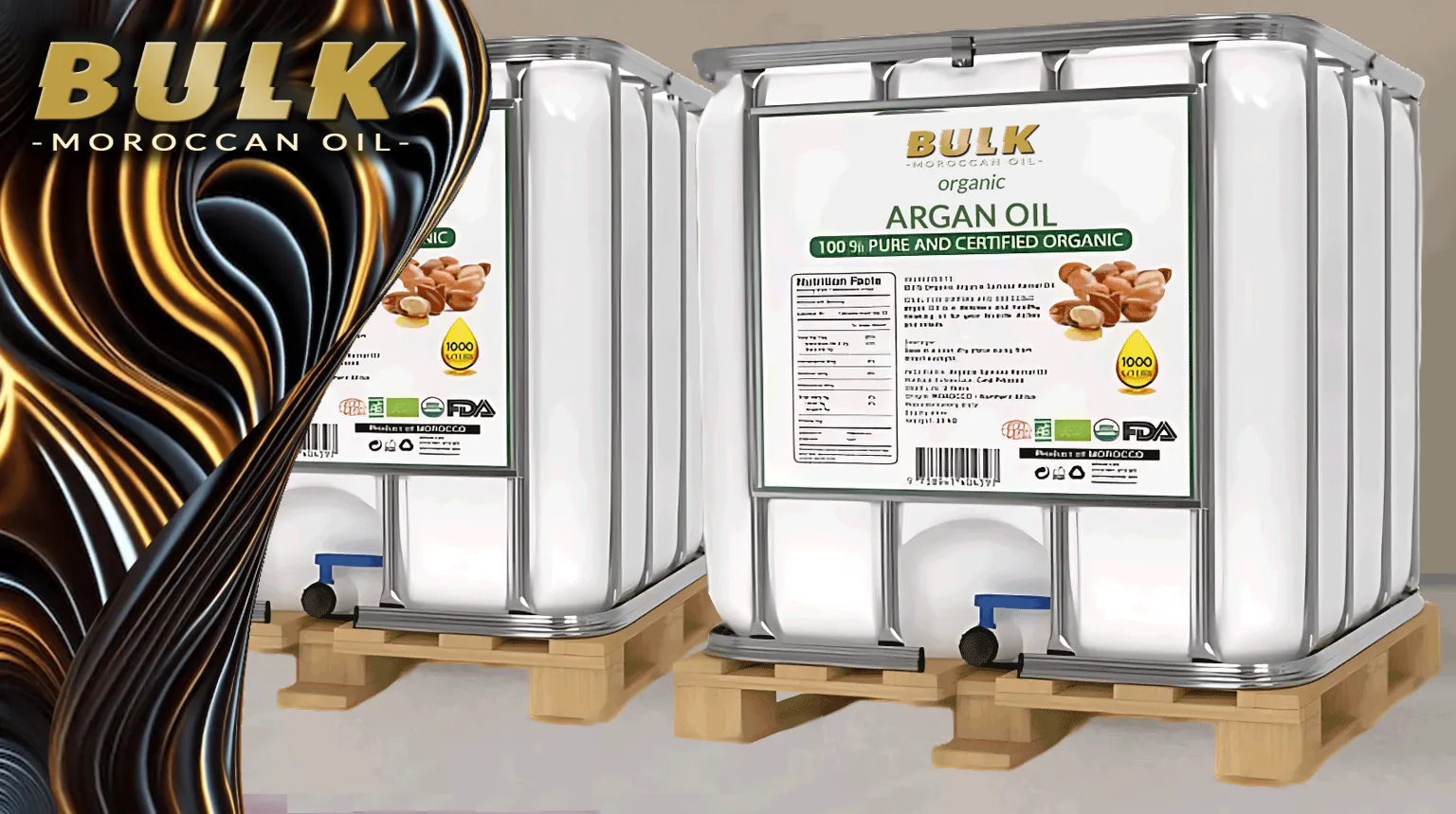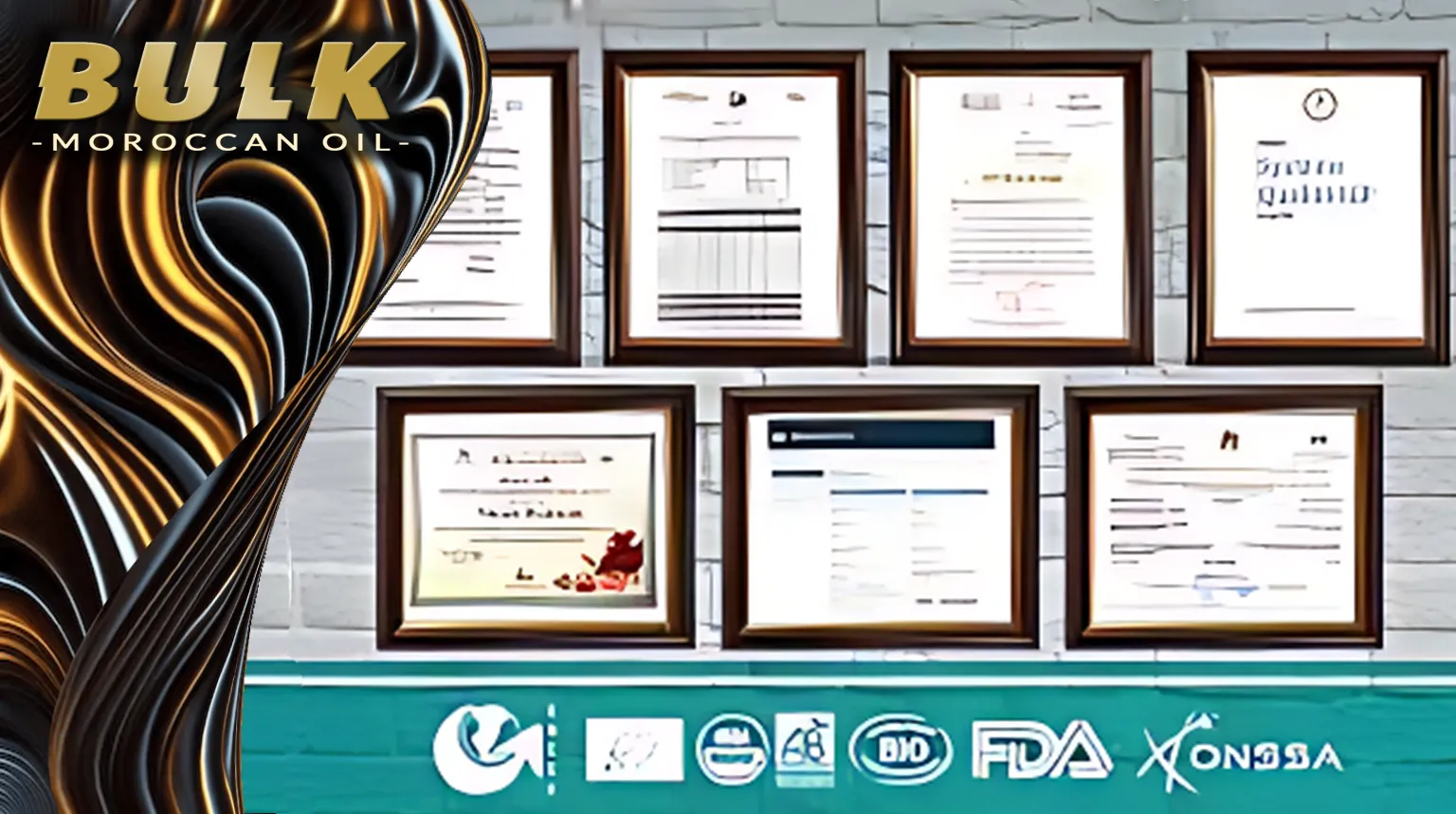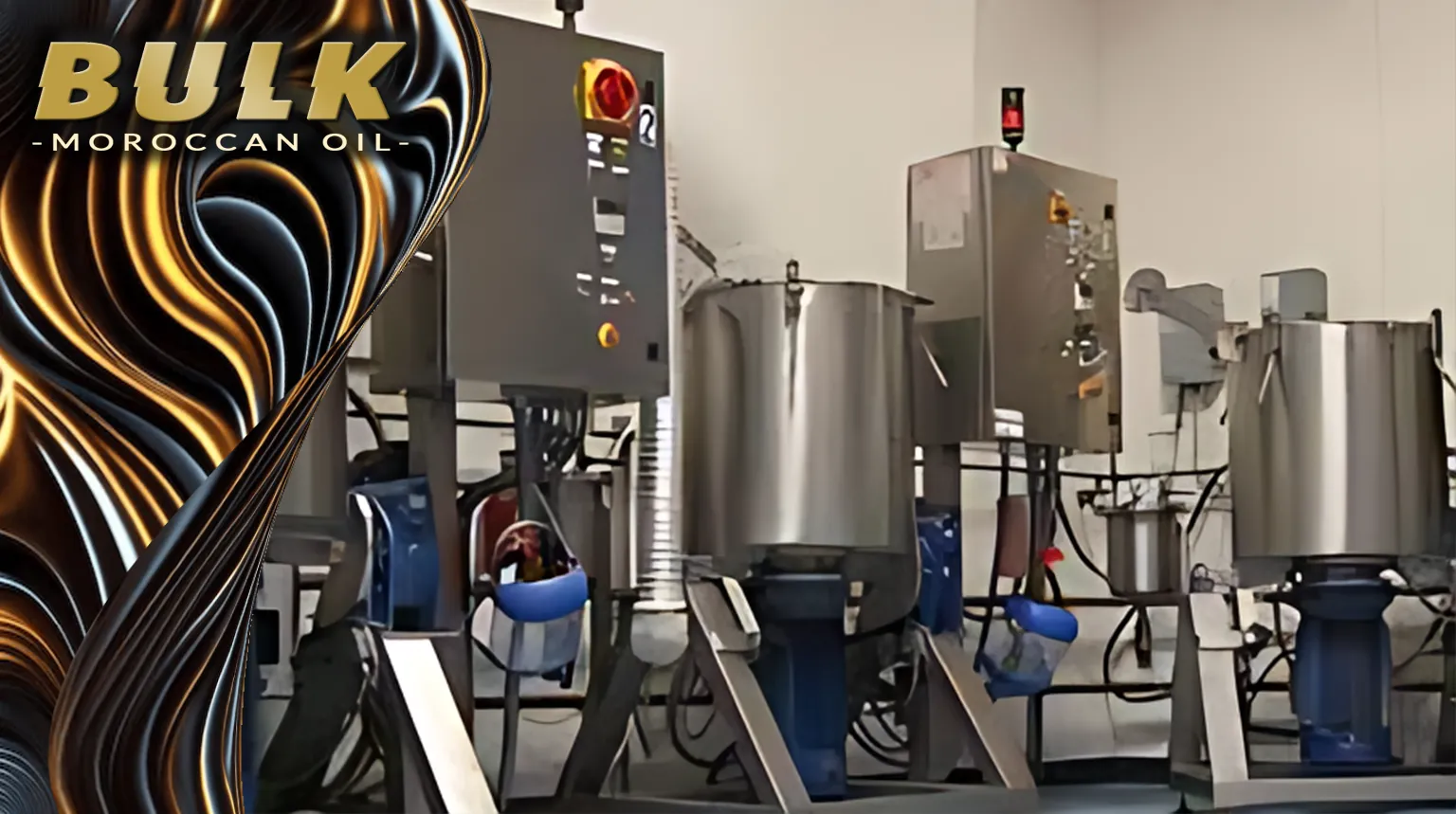Wholesale Business Planning: Essential Steps to Start and Succeed
Starting a wholesale business requires careful planning and preparation to ensure its success in a competitive market. This comprehensive guide will walk you through the essential steps to plan your wholesale business effectively. From researching your target market to creating a business plan, we will provide valuable insights to help you establish and grow your new wholesale business.
Content:
- Research Your Target Market
- Estimating Demand
- Decide What to Sell
- Financing Your Wholesale Business
- Creating a Business Plan
- Building Strong Supplier Relationships
- Implementing Inventory Management Software
- Developing a Wholesale Marketing Plan
- Streamlining Your Wholesale Operations
- Expanding Your Wholesale Business
- Conclusion
This blog is brought to you by BULK Moroccan Oil, your wholesale supplier for organic pure Argan oil.

Why Plan Your Wholesale Business
Planning your wholesale business is crucial for several reasons. It helps you:
- Define Your Goals: A well-defined plan allows you to set clear objectives and chart a path to achieve them. It helps you stay focused and motivated throughout your entrepreneurial journey.
- Understand Your Market: Through market research, you gain valuable insights into your target audience, competitors, and industry trends. This information helps you identify opportunities and make informed business decisions.
- Mitigate Risks: Planning allows you to identify and address potential risks and challenges that may arise. By having contingency plans in place, you can navigate uncertainties with confidence.
- Secure Funding: A comprehensive business plan is crucial when seeking financing from investors or lenders. It showcases your business strategy, financial projections, and growth potential, increasing your chances of securing the necessary funds.
- Optimize Resource Allocation: Planning helps you allocate your resources effectively, whether it's financial, human, or time. It ensures that you use your resources strategically and efficiently, maximizing your business's productivity and profitability.
Research Your Target Market
The first step in planning your wholesale business is researching your target market. By understanding the needs and preferences of your potential customers, you can tailor your products and services to meet their demands. Conduct market research to identify your target market's demographics, including age, gender, location, and income level. This information will help you determine the specific products or services that resonate with your target market.
Estimating Demand
Estimating the demand for your products is crucial in planning your wholesale business. Consider the existing competition in the market and analyze the number of wholesalers already offering similar goods in your area. Determine the number of potential customers in your area and estimate how many of them might become your clients. This information will give you valuable insights into the potential market size and help you make informed decisions regarding product selection and marketing strategies.
Decide What to Sell
Choosing the right products to sell is critical for your wholesale business. Consider factors such as the size of your premises, the nature of your target market, and the product ranges stocked by your competitors. Identify what makes your business unique and find a niche that differentiates you from competitors. Maintaining quality standards and providing excellent customer service to differentiate your business from others in the market is also essential. Do your research and talk with some potential retailers so you get a good understanding of the market before you start selling.
Financing Your Wholesale Business
Determining the financing options for your wholesale business is essential to ensure smooth operations and growth. Explore options such as loans, alternative financing, or seeking investors. Carefully evaluate the pros and cons of each option to make an informed decision based on your specific circumstances and business goals. Consult financial advisors or experts to help you navigate the financing process. You notice that a lot of preparation is needed to open a business even before you can sell your products. Your bank will appreciate it when you write a business plan elaborating on all these points.
Creating a Business Plan
Developing a comprehensive business plan is crucial for the success of your wholesale business. Your business plan should include financial projections, marketing strategies, operational processes, and growth plans. It serves as a roadmap to guide your business decisions and helps secure funding from lenders or investors. A well-defined business plan will also help you stay focused on your goals and measure your progress, and will further improve your business model.
Building Strong Supplier Relationships
Establishing solid relationships with reliable suppliers is vital for your wholesale business. Research and identify potential suppliers who can provide quality products at competitive prices. Negotiate favorable terms, such as discounts for larger orders or exclusive agreements. Maintaining open communication with your suppliers and nurturing these relationships will ensure a steady supply of products and allow for mutual growth and success. Attracting new solid suppliers can give you, as a distributor, a more solid supply chain and a better wholesale price.
Implementing Inventory Management Software
Efficient inventory management is crucial in running a thriving wholesale business. Implementing inventory management software can streamline your operations, improve accuracy, and facilitate better inventory control. This software can help you track stock levels, manage orders, and automate processes, saving time and reducing errors. Utilizing inventory management software will ensure you have the right products available when customers place orders, enhancing customer satisfaction and overall business performance.
Developing a Wholesale Marketing Plan
A well-crafted marketing plan is essential for promoting your wholesale business to potential customers. Identify your target market and develop strategies to reach and engage them effectively. Consider a mix of marketing channels, such as online advertising, social media, trade shows, and networking events. Determine the key messages and unique selling points that differentiate your business and create compelling marketing materials to showcase your products and services.
Streamlining Your Wholesale Operations
Efficiency in wholesale operations is crucial to maximize profitability and customer satisfaction. Explore ways to streamline your processes, such as optimizing order fulfillment, improving logistics and shipping, and implementing automation where possible. You can create a competitive advantage in the wholesale industry by reducing costs, minimizing errors, and enhancing productivity and profit margin.
Expanding Your Wholesale Business
Once your wholesale business is established and running smoothly, it's time to focus on growth and expansion. Continuously evaluate market trends, customer needs, and industry developments to identify expansion opportunities. Consider expanding your product offerings, targeting new customer segments, or exploring new geographic markets. Continual innovation and adaptation will help you stay ahead of competitors and drive long-term success. Get professional support for your promotion. You need to get your message across before you can make a profit.
Conclusion
Planning your wholesale business is a critical step in ensuring a successful venture. By conducting thorough market research, creating a robust business plan, and implementing effective marketing and operational strategies, you can set a strong foundation for your wholesale business. Adapt to changing market dynamics, nurture supplier relationships, and prioritize customer satisfaction. With careful planning and strategic execution, your wholesale business can thrive and grow in a competitive market.
As wholesale business owners, offering a wide range of products in large quantities is essential for attracting wholesale customers. Embracing e-commerce platforms enables efficient sales and provides opportunities to reach a broader customer base. Additionally, wholesalers can offer reselling options, allowing retailers to resell their products profitably.
Key Points:
- Research your target market to understand their needs, preferences, and purchasing behavior.
- Estimate the demand for your products by analyzing competition and identifying potential customers.
- Choose the right products to sell based on market analysis, competition, and customer preferences.
- Determine financing options for your wholesale business, such as loans or seeking investors.
- Develop a comprehensive business plan that outlines objectives, strategies, financial projections, and operational processes.
- Build strong relationships with reliable suppliers to ensure a steady supply of quality products.
- Implement inventory management software to streamline operations and optimize inventory control.
- Create a wholesale marketing plan to reach and engage your target market effectively.
- Streamline operations by optimizing order fulfillment logistics and implementing automation.
- Identify opportunities for expansion and growth by continuously evaluating market trends and customer needs.
- Ensure customer satisfaction, adapt to market dynamics, and prioritize strong supplier relationships for long-term success.
Other Articles in this Series:
- Becoming a distributorUnderstanding the Wholesale Business
- Understanding The Wholesale Business
- Securing Financing For Your Wholesale Business
- Planning Your Wholesale BusinessSourcing Wholesale Products
- Sourcing Wholesale Products
- Setting Up Your Wholesale Business
- Understanding the Wholesale Pricing Model
- Marketing and Selling Wholesale Products
- Managing Operations and Logistics
- Expanding and Growing Your Wholesale Business
- Tips Making A Blueprint for a Successful Wholesale Distribution Business
Resources
- Fleximize - "8 Steps to Starting a Wholesale Business"
- Growthink - "Wholesale Business Plan Template [Updated 2023]"
- Start Up Donut - "How to start up a wholesaling business"
- Unleashed Software - "Wholesale Management: The 11 Steps for Business Success"
- Shopify UK - "14 Wholesale Strategy Tips for Retail (2023)"
- Contrado - "11 Important Things To Know Before Starting A Wholesale Business"
- MoreBusiness - "7 Steps to Start Your Wholesale Business: Startup Ideas & Tips"
- BlueCart - "How to Run a Wholesale Business: 8 Factors to Consider"
- NerdWallet - "How to Start a Wholesale Business"
- Wholesale Suite Plugin - "Expand Your Wholesale Business"
Hashtags:
#wholesale #wholesalebusiness #startawholesalebusiness #businessplan #wholesaler #supplier #inventorymanagement #startyourwholesalebusiness #b2b #ecommerce #startingawholesale #wholesaleindustry #growthstrategy #retailers #smallbusinesses
Frequently Asked Questions (FAQ)
Q: How do I start a wholesale business?
A: To start a wholesale business, research the market, identify your target customers, secure suppliers, obtain any necessary licenses, and create a business plan outlining your goals and strategies.
Q: What are the essential steps to starting a wholesale business?
A: The essential steps to starting a wholesale business include defining your niche, setting up your business structure, creating a pricing strategy, establishing relationships with suppliers, and developing a marketing plan to reach potential customers.
Q: Why is writing a business plan important for a wholesale business?
A: Writing a business plan for your wholesale business is crucial as it helps you outline your objectives, identify potential challenges, set financial goals, and create a roadmap for your business's growth and success.
Q: How can I attract new wholesale customers to my business?
A: To attract new wholesale customers, you can use targeted marketing strategies, offer promotional deals, attend trade shows and industry events, provide excellent customer service, and build a strong online presence for your wholesale business.
Q: What role does inventory software play in running a wholesale business?
A: Inventory software is essential for managing stock levels, tracking orders, streamlining operations, and ensuring efficient inventory management in a wholesale business.
Q: What is the market like for a wholesale business?
A: The market for a wholesale business is diverse and competitive, with opportunities to cater to various industries and businesses looking to buy goods in bulk at discounted prices.
Q: How can I ensure the success of my wholesale business online?
A: To ensure the success of your wholesale business online, you need to focus on building a user-friendly website, optimizing for search engines, providing secure online payment options, and engaging with customers through social media and email marketing.
Q: How do I start a wholesale business?
A: To start a wholesale business, research the wholesale industry, write a business plan, choose your target market, obtain necessary licenses, find suppliers, and set up your operations.
Q: What are the essential steps to starting a wholesale business?
A: The essential steps to starting a wholesale business include identifying your niche, building relationships with suppliers, setting competitive pricing, developing a marketing strategy, and ensuring efficient logistics.
Q: Why is having a business plan important for a wholesale business?
A: A business plan helps outline your goals, target market, financial projections, and strategies for growth. It serves as a roadmap for your wholesale business and helps attract investors or partners.
Q: How can I attract new wholesale customers?
A: You can attract new wholesale customers by offering competitive pricing, providing excellent customer service, showcasing product quality, attending trade shows, and leveraging online platforms for marketing.
Q: What role does inventory software play in running a wholesale business?
A: Inventory software helps manage stock levels, track sales, streamline order processing, improve inventory accuracy, and enhance overall efficiency in the operations of a wholesale business.
Q: How important is the market for a wholesale business?
A: The market for a wholesale business is crucial as it determines demand, competition, pricing strategies, and overall profitability. Understanding the market trends helps in making informed business decisions.
Q: What are the key factors when setting up a wholesale account?
A: When setting up a wholesale account, consider factors such as minimum order requirements, payment terms, return policies, shipping costs, discounts, and the overall relationship with the supplier.
Q: What is a wholesaler and how does it relate to the wholesale industry?
A: A wholesaler is a business that buys products in bulk from manufacturers and sells them to retailers or other businesses at a discounted price. Wholesalers play a key role in the wholesale industry by facilitating the distribution of goods between manufacturers and retailers.
Q: How can I start my wholesale business?
A: To start your wholesale business, you need to research the market for your wholesale business, identify your target customers, obtain necessary licenses and permits, establish relationships with suppliers, and create a business plan outlining your goals and strategies.
Q: What are the essential steps to succeed in the wholesale business?
A: Essential steps to succeed in the wholesale business include building strong relationships with suppliers and customers, ensuring a steady cash flow, offering competitive prices, providing quality service, and continuously monitoring and adapting to market trends.
Q: What is the difference between a wholesaler and a distributor in the wholesale industry?
A: While both wholesalers and distributors facilitate the movement of goods from manufacturers to retailers, wholesalers typically buy products in bulk and sell them to other businesses, while distributors focus on physically delivering products to retailers and customers.
Q: How can an existing wholesale business help your business grow?
A: An existing wholesale business can help your business grow by providing access to a network of suppliers and customers, sharing industry insights and best practices, and offering opportunities for collaborations and partnerships.
Q: What role does e-commerce play in the wholesale industry?
A: E-commerce has become increasingly important in the wholesale industry, allowing wholesalers to reach a larger audience, streamline the ordering process, and offer convenient payment options for customers looking to buy wholesale products online.
Q: Why is it important to plan to sell your goods and services in the wholesale business?
A: Planning to sell your goods and services is crucial in the wholesale business to ensure you target customers, set competitive prices, manage your inventory effectively, and maintain a profitable business model that aligns with market demand.























